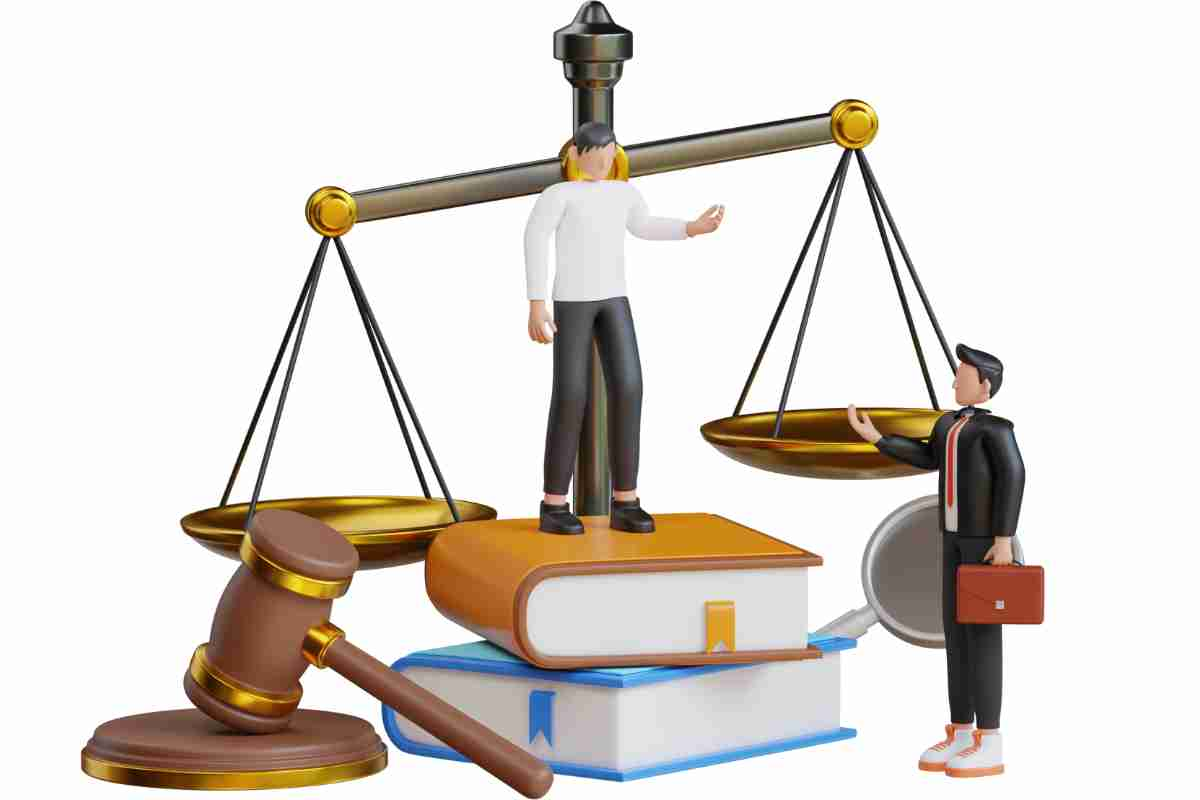Digital Media and Law in the USA: Navigating the Online World

Digital Media and Law in the USA: Navigating the Online World:- The digital era has reshaped many aspects of our lives, from the way we communicate to how we consume information. With this transformation comes myriad legal challenges and regulations that individuals, businesses, and platforms need to be aware of. Understanding the legal landscape surrounding digital media in the USA is crucial for anyone looking to thrive in this online world.
A Brief Overview of Digital Media Laws in the USA
In the USA, digital media law covers a broad spectrum of topics. From copyright issues to defamation, the rights and responsibilities of digital content creators and users have never been more pertinent.
Copyright and Fair Use
Copyright laws are designed to protect the original works of authors, artists, and creators. However, with the advent of the internet and the ease of content sharing, violations have become widespread. While creators can enforce their rights, users can often rely on the Fair Use doctrine. This allows for the use of copyrighted material for purposes like criticism, news reporting, and education, but it’s not a blanket permission.
Privacy and Data Protection
Privacy concerns have been at the forefront of digital media discussions. The United States does not have a singular, comprehensive privacy law, but several state-level regulations, like the California Consumer Privacy Act (CCPA), set data collection and storage standards.
Also, Read Building Networks Connecting with Peers and Professors
Defamation and the Digital World
Online platforms have given everyone a voice. But with this power comes the risk of spreading false information. Defamation laws apply to the digital world just as they do offline. From individual bloggers to major news outlets, online entities can face legal repercussions if they publish or spread false information that harms someone’s reputation.
The Role of Platforms: Responsibilities and Protections
Digital platforms, like social media sites and blogs, play a pivotal role in today’s online ecosystem. But what are their legal obligations?
Section 230 of the Communications Decency Act
Perhaps one of the most discussed pieces of legislation in the realm of digital media law, Section 230 protects online platforms from being treated as the publisher or speaker of third-party content. This means platforms typically can’t be held liable for user-generated content.
Content Moderation and Free Speech
The balance between moderating content and ensuring free speech is a delicate one. While platforms are protected by Section 230, they also have terms of service that users agree to. This allows platforms to remove or restrict content that violates their policies, even if it doesn’t break any laws.
Challenges Ahead: Adapting to an Evolving Landscape
The intersection of digital media and law is a dynamic one. As technology evolves, so do the legal challenges and the ways in which they are addressed.
The Influence of AI and Deepfakes
Artificial Intelligence (AI) and deepfakes present new challenges. Manipulating videos or images to make it appear as if someone said or did something they didn’t can have serious repercussions, from misinformation campaigns to defamation.
Globalization of Digital Media
The internet knows no borders. Content created in one country can easily be viewed in another, leading to legal complexities. How do US laws apply to content consumed internationally, and vice versa?
Emerging Trends in Digital Media Law
Digital media law doesn’t operate in a vacuum; it constantly evolves, reflecting changes in societal values, technological advancements, and global dynamics.
The Rise of E-commerce and its Legal Implications
E-commerce has grown exponentially over the past decade, and a new set of challenges comes with it. Online retailers and customers face transaction security issues, privacy rights, and fraud. Regulations like the Electronic Signatures in Global and National Commerce Act (E-Sign Act) affirm the validity of electronic records and signatures, bolstering trust in online transactions.
Augmented Reality (AR) and Virtual Reality (VR)
AR and VR technologies are transforming digital experiences. These technologies create immersive environments, and with that immersion comes legal gray areas. For instance, who is responsible when a VR experience causes psychological distress? Or how do property rights work in AR, where digital assets can be layered on real-world locations?
Influencers and Disclosure Regulations
The world of social media influencers is growing, and so are the regulations surrounding them. The Federal Trade Commission (FTC) requires influencers to disclose their relationships with brands when promoting products clearly. This ensures transparency and protects consumers from misleading advertisements.
Cross-border Data Flow and Jurisdictional Challenges
In today’s interconnected digital world, data crosses borders effortlessly. This raises questions about which country’s laws apply to data storage, transfer, and breaches. Cross-border data flow regulations ensure that personal information remains protected, regardless of where it’s stored or transferred.
Digital Media Law and Ethics: Walking the Tightrope
In addition to legal considerations, ethical challenges are prominent in the digital realm.
Combatting Misinformation and Fake News
Misinformation can have dire consequences, from political upheavals to public health crises. While laws can penalize those who knowingly spread false information, ethical standards must guide the creation and sharing of digital content.
Privacy vs. National Security
The debate between individual privacy and national security rages on, especially in the digital domain. While law enforcement agencies push for backdoors into encrypted communication for national security reasons, digital rights activists argue that this compromises personal privacy and exposes data to potential misuse.
Ethical Implications of AI and Big Data
As AI and big data technologies become more integrated into our lives, they bring along ethical concerns about privacy, surveillance, and the potential for bias in automated decisions.
Monetization and Digital Media: Legal Pathways and Pitfalls
In the world of digital media, monetization stands as a significant driving force. Yet, with increasing opportunities to earn, there are also a myriad of legal intricacies that creators, platforms, and advertisers must be aware of.
Digital Advertising and its Regulatory Framework
Digital advertising has revolutionized how brands connect with their audience. This has given birth to methodologies like programmatic advertising, retargeting, and native ads. However, transparency issues arise when ads are not clearly distinguishable from regular content. Agencies like The Federal Trade Commission (FTC) mandate clear labeling of paid content to ensure consumer clarity and trust.
Subscription Models and Consumer Protection
Many digital media platforms have adopted subscription-based models as a primary revenue source. Laws surrounding auto-renewals, cancelation policies, and transparent pricing are vital to protect consumers from potential malpractices.
Crowdfunding and Legal Considerations
Platforms like Kickstarter and Indiegogo have democratized the fundraising process, enabling creators to get financial backing directly from their audience. Yet, this approach also raises questions about delivery obligations, refund rights, and the potential misrepresentation of products or projects.
Licensing and Royalty Issues in Digital Media
With the ease of content distribution in the digital age, licensing music, images, or videos becomes essential. Ensuring that creators receive their due royalties and recognizing the distinction between different licensing types (like Creative Commons vs. commercial licenses) ensures a fair ecosystem.
The Legal Landscape of Digital Media Mergers and Acquisitions
The digital world witnesses rapid mergers and acquisitions (M&A). These M&A activities, while signifying growth and consolidation, also pose antitrust concerns.
Scrutinizing Digital Monopolies
Major tech companies acquiring smaller startups have become commonplace. Regulatory bodies are increasingly vigilant to ensure that such M&As don’t lead to monopolistic practices, stifling competition and innovation in the market.
Data Privacy Concerns in M&A
When one digital entity acquires another, massive amounts of user data are transferred. Ensuring that this data remains protected and is used ethically post-acquisition is a top priority for legal overseers.
Future Implications: What’s on the Horizon?
While we’ve navigated through the present-day intricacies of digital media law, it’s vital to look forward to anticipate future challenges.
The Quantum Computing Revolution
Quantum computing promises to bring about unprecedented computational power. With this might come new challenges in data encryption, security, and potential misuse.
Decentralized Digital Platforms and Law
Blockchain technology and decentralization might redefine content ownership, distribution, and monetization. How will laws evolve to address a world where content isn’t hosted on centralized servers but on decentralized nodes?
Digital Media Accessibility and Legal Obligations
As digital media permeates every facet of modern life, its accessibility to all individuals, irrespective of disabilities or challenges, becomes paramount. Not only is this a moral imperative, but it’s also a legal necessity in many jurisdictions, including the USA.
The Americans with Disabilities Act (ADA) and Digital Media
The Americans with Disabilities Act (ADA), though initially not crafted with the digital realm in mind, has seen its principles extended to online spaces. Websites, applications, and other digital platforms may be seen as “public accommodations” and, therefore, might be required to be accessible to people with disabilities.
Web Content Accessibility Guidelines (WCAG)
A set of guidelines known as the Web Content Accessibility Guidelines (WCAG) provides a roadmap for creating accessible online content. From ensuring that websites are navigable with screen readers for the visually impaired to providing subtitles for video content for the hearing impaired, these guidelines aim to make the digital world inclusive.
Legal Repercussions of Non-compliance
Businesses and platforms that fail to ensure digital accessibility can face significant legal consequences. Beyond potential lawsuits, there’s the damage to reputation and the missed opportunity of reaching a wider audience.
Impact of Blockchain and Cryptocurrency on Digital Media
The rise of blockchain technology and cryptocurrencies is set to leave an indelible mark on the world of digital media.
Smart Contracts and Royalty Distribution
Smart contracts, enabled by blockchain, promise to automate and ensure transparent royalty payments to content creators. Whether it’s music, digital art, or written content, smart contracts can be programmed to distribute funds as soon as a sale is made or content is consumed.
NFTs and Digital Ownership
Non-fungible tokens (NFTs) have redefined digital ownership. Digital artists can now sell their creations as unique digital assets. The legal dimensions of NFTs, from ownership rights to potential copyright infringements, are areas of intense exploration and discussion.
Potential Regulatory Challenges
As with any innovative technology, blockchain and cryptocurrencies might come under the scanner of regulatory bodies. Ensuring that these technologies are used ethically and legally in the realm of digital media will be a key challenge moving forward.
Embracing Globalization in Digital Media Law
In an increasingly interconnected world, the boundaries between nations blur in the digital realm.
Harmonizing International Digital Media Laws
With content being created and consumed globally, there’s a pressing need to harmonize digital media laws across borders. Collaborative international frameworks can ensure consistent legal approaches, benefiting creators and consumers alike.
Digital Media and Cross-border Litigations
Challenges arise when legal conflicts span multiple jurisdictions. How do courts in one country handle a digital media dispute that involves parties from different nations? Resolving such complexities demands international cooperation and a deep understanding of diverse legal landscapes.
In Conclusion
Navigating the intricate maze of digital media law in the USA requires a keen understanding of both the ever-evolving tech landscape and the legal regulations in place. As the line between the digital and real worlds continues to blur, staying informed is more crucial than ever.







